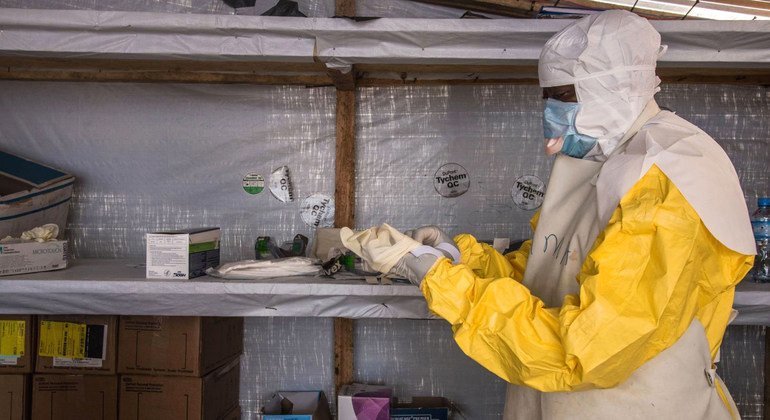Ghana currently has no active cases of the Marburg Virus Disease (MVD) after the country declared its first-ever outbreak more than a month ago on July 4.
According to the Ghana Health Service (GHS), one of the three cases recorded has successfully recovered while the two others died.
“The only survivor of the three (3) has since recovered from the disease following two negative tests carried out 48hours apart on the 3rd and 6th of august 2022, respectively, by the Noguchi Memorial Institute for Medical Research (NMIMR). The patient has since been discharged and reunited with her family. Ghana, therefore, has no case of MVD,” the statement said.
In line with World Health Organization (WHO) guidelines, this outbreak will be declared 42 days after the last negative test if there are no new cases.
Background
The Ghana Health Service and the Noguchi Memorial Institute for Medical Research (NMIMR) confirmed the first two cases of the Marburg Virus Disease on July 4, 2022, after two persons met case identification for Acute Haemorrhagic Fever in two locations in the Ashanti Region.
These samples were further confirmed following tests by the Institute Pasteur in Dakar, Senegal, with support from the World Health Organization.
The Ghana Health Service said 198 contacts were identified in four districts – Adansi North and South, Prestea Huni Valley, and Sawla-Tuna-Kalba – following the outbreak.
Meanwhile, 118 of them have completed the 21 days of mandatory follow-up and were discharged, with the remaining contacts having no symptoms.
What is Marburg Virus Disease?
“Marburg virus disease is a highly virulent disease that causes haemorrhagic fever, with a fatality ratio of up to 88%. It is in the same family as the virus that causes Ebola virus disease,” the World Health Organization (WHO) has said.
The human infection with Marburg virus disease initially results from prolonged exposure to mines or caves inhabited by Rousettus bat colonies and has a 2 to 21 days incubation period.
Marburg can spread through human-to-human transmission via direct contact.
The Ghana Health Service has encouraged the public to continue to observe preventive measures and report any illness to the nearest health facility for medical attention.
By: Gifty Tracy Aminu





